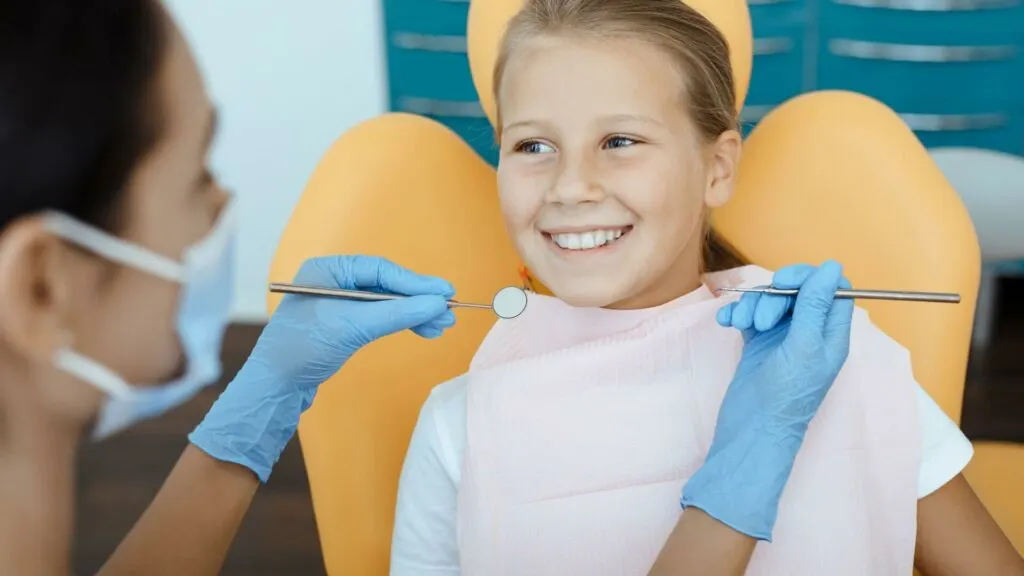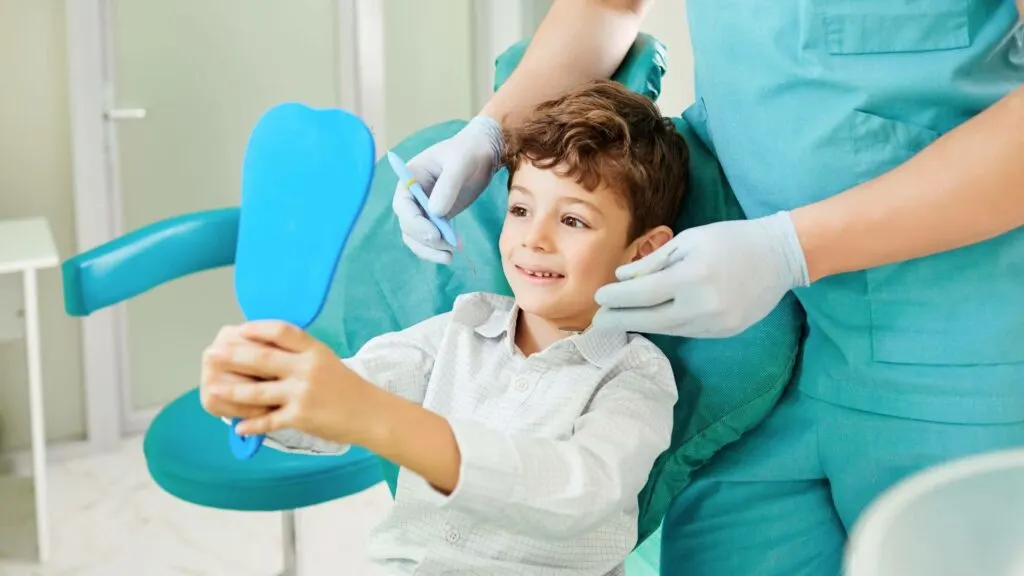Pediatric dentistry plays a crucial role in laying the foundation for a lifetime of healthy oral habits. Specializing in the dental care of infants, toddlers, children, and adolescents, pediatric dentists are equipped with the expertise to address the unique dental concerns that arise at each stage of a child’s growth.
Their focus is not only on treating dental issues but also on preventive care, educating both parents and children on the importance of maintaining oral hygiene from an early age. The early detection and treatment of dental problems can prevent minor issues from developing into major complications, ensuring your child maintains a healthy, happy smile well into adulthood.

The Role of Fluoride in Children’s Dental Health
Fluoride is often called nature’s cavity fighter, playing a significant role in reducing the risk of cavities in children’s teeth. It strengthens the tooth enamel, making it more resistant to acid attacks from plaque bacteria and sugars in the mouth. Pediatric dentists may recommend fluoride treatments during dental visits to bolster the teeth’s defenses, especially in areas where the drinking water might not be fluoridated.
In addition to professional fluoride treatments, pediatric dentists emphasize the importance of using fluoride toothpaste at home. Parents are advised to supervise their children’s brushing habits, ensuring they use a pea-sized amount of toothpaste and learn not to swallow it. This daily practice contributes to the overall health of the child’s teeth and gums, providing a protective barrier against cavity-causing agents.
Importance of Regular Dental Check-ups
Regular dental check-ups are vital for maintaining your child’s oral health. These check-ups allow pediatric dentists to monitor the development of the child’s teeth and jaws, identify any potential issues early on, and recommend the necessary preventive or corrective treatments. Ideally, children should visit the dentist every six months, though some children may need more frequent visits depending on their individual needs. During these visits, pediatric dentists can also apply sealants to the chewing surfaces of back teeth, where most cavities in children are found.
Sealants are a protective coating that helps prevent food and bacteria from getting stuck in the tiny grooves of the teeth, significantly reducing the risk of cavities. Don’t let a dental emergency be the reason for your child’s first visit to the dentist; regular check-ups can prevent such situations. Also, these visits allow your child to get accustomed to the dental office and build a positive relationship with their dentist, making future appointments less daunting.
Educating Children and Parents on Oral Hygiene
Education on proper oral hygiene practices is a key component of pediatric dentistry. Pediatric dentists take the time to teach children the correct way to brush and floss, making it a fun part of their daily routine. They also provide parents with tips and techniques for helping their children maintain these habits, understanding that parental involvement is crucial to the development of long-lasting oral care habits.
This education extends beyond brushing and flossing to include advice on a healthy diet that promotes oral health. Pediatric dentists discuss with parents the types of foods and drinks that should be consumed in moderation to prevent cavities, such as sugary snacks and acidic beverages, and emphasize the importance of nutritious foods that strengthen teeth.
Managing Dental Anxiety in Children
Many children experience anxiety about visiting the dentist. Pediatric dentists are specially trained to handle these fears, creating a welcoming and child-friendly environment that makes dental visits less intimidating. They use techniques such as sedation dentistry when necessary to ensure that dental procedures are performed with minimal discomfort and stress for the child.
Encouraging children to express their fears and teaching them coping strategies can also help manage dental anxiety. Pediatric dentists often recommend that parents stay positive about dental visits, use comforting language, and avoid sharing their dental anxieties with their children.
The Significance of Early Orthodontic Assessment
An early orthodontic assessment is another critical aspect of pediatric dentistry. By evaluating a child’s bite and jaw alignment early, pediatric dentists can identify potential orthodontic issues that may require intervention. Early treatment can guide the growth of the jaw and correct bite problems, making future orthodontic treatment simpler and less invasive.
Such assessments also provide an opportunity to address habits that may be detrimental to a child’s dental development, such as thumb sucking or prolonged pacifier use. By intercepting these habits early, pediatric dentists help ensure a healthier and more aesthetically pleasing development of the teeth and jaws.

In conclusion, the field of pediatric dentistry is vital for ensuring the long-term oral health of children. From early detection and treatment of dental issues to the education of children and parents on proper oral hygiene practices, pediatric dentists lay the groundwork for healthy smiles that can last a lifetime. Regular dental check-ups, along with professional treatments such as fluoride application and sealants, play a key role in preventing cavities and other dental problems.
Additionally, managing dental anxiety and conducting early orthodontic assessments are crucial steps in maintaining not only the physical well-being of young patients but also their psychological comfort with dental care. By prioritizing pediatric dental care, we invest in the future oral health of our children, allowing them to grow with confidence and a positive outlook on dental hygiene.

Jessi is the creative mind behind The Coffee Mom, a popular blog that combines parenting advice, travel tips, and a love for all things Disney. As a trusted Disney influencer and passionate storyteller, Jessi’s authentic insights and relatable content resonate with readers worldwide.
